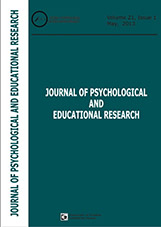The effects of teaching self-efficacy on students’ cognitive engagement
The effects of teaching self-efficacy on students’ cognitive engagement
Author(s): Mehdi Arabzadeh, Mohammad Bayanati , Mahdieh Nadery , Mahmood negahban salami Mahmood negahban salami Subject(s): Psychology
Published by: Editura Universitatii din Oradea
Keywords: motivation; self-efficacy; cognitive engagement
Summary/Abstract: The purpose of this study was to examine the effects of teaching self-efficacy on students’ cognitive engagement. The sample size consisted of 50 high school students, 25 in each experimental and control groups; the sampling method we used was of a random cluster multiple-stage type. The measurement instrument was the Cognitive Engagement Questionnaires (Greene & Miller, 1996) which were administered as a pre-test for both groups. After this initial stage of testing, only the experimental group received a 15 session teaching course in self-efficacy. After the training, a post-test using the aforementioned instrument was realized for both groups. The gathered data was analyzed by calculating the analysis of covariance (ANCOVA) coefficient. The results of the study indicated that the teaching of self-efficacy has had a significant effect on students’ cognitive engagement. Teaching self-efficacy enables students to be positively influenced by cognitive strategies, which they can employ to guide their learning.
Journal: International Journal of Education and Psychology in the Community (IJEPC)
- Issue Year: III/2013
- Issue No: 1
- Page Range: 64-73
- Page Count: 10
- Language: English
- Content File-PDF

